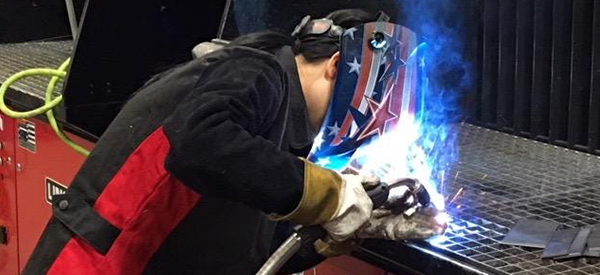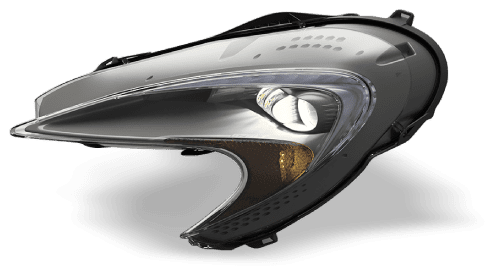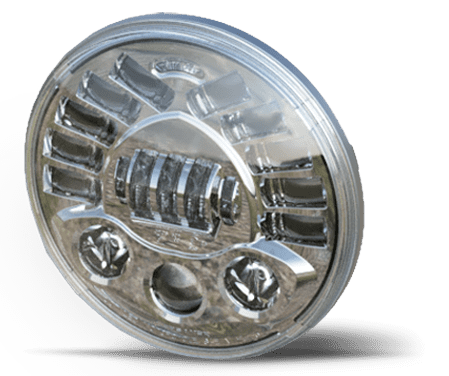
Attention to detail and concentration are skills required to be a nurse. But they’re also skills required to be a welder, said Karen Feliciano, a welding instructor at Waukesha County Technical College.
“Instead of working on humans, you work on metal,” said Feliciano, the only female welding instructor at the school. “The skills are very transferrable.”
But she said manufacturing jobs have a reputation for being less friendly to women — just as nursing jobs have a reputation for being less friendly to men.
Welding and other jobs in manufacturing are still very much male-dominated. At WCTC, only 70 of the 534 students enrolled in the manufacturing programs — just 13% — are female, according to Mike Shiels, dean of the school of applied technologies. Those programs include welding, machining, automation, and industrial maintenance.
Similarly, of the 245 students in the nursing program, just 10% are male, said Andrew Palen, director of public relations, marketing and outreach at WCTC.
Nationwide, 12% of registered nurses are men, and 29% of people in manufacturing jobs are women, according to the U.S. Bureau of Labor Statistics.
Local workers say it’s time to change those numbers.
Shiels said more women should be in the manufacturing fields.
“Women are good with detail, and I have seen them have a better eye for color,” he said. He agreed with Feliciano that the hands-on practice of nursing transfers well to manufacturing jobs.
“This is something they (women) can really thrive in,” he said.
So why aren’t more women in manufacturing jobs?
In a word: stereotypes.
Shiels said nursing is associated with nurturing, a trait stereotypically attributed to women. There are also stereotypes for manufacturing jobs, which Shiels discounts: “It is not dirty, dark and dangerous,” he said.
Shiels added that the jobs are not filled with “huge, tough men.” In actuality, he said, machines do the heavy lifting.
Passing on skills to next generation Feliciano said she didn’t know much about what a welder did before she became one. Feliciano said that growing up, she loved learning how to fix things. When she came to Milwaukee at age 15, she was called a tomboy for the first time.
“I never minded,” Feliciano said. “I just liked figuring out how things worked.”
When Feliciano left her job in the assembly field, she wanted to go to school, but a two-year commitment was too long to be out of work.
Feliciano’s adviser introduced her to welding — a one-year program at WCTC — and she said it sounded like a perfect career.
And at first, it was intimidating, Feliciano said. When she began the welding certification program in 2007, there was only one other woman in the program.
Feliciano worked full-time as a welder from 2008-15 when she began teaching welding full-time at WCTC.
“I felt I always had to prove myself,” said Feliciano. “But that is not that hard to do when you have the training and like to learn.”
“I love being the only female. I like being different,” she added.
But Feliciano said she would like to see more women try welding. She teaches a free, one-hour Women in Welding class at WCTC to introduce women to the program and help them decide whether they want to pursue it further.
“Most of them are scared, and their confidence is low, as they think it is a male-dominated field,” Feliciano said. “And it is. But I tell them that some females can do it (welding) better than some males.”
“I see myself in my students. I like to see them succeed. I do my job well, and I proved it in the long run.”
‘Don’t be afraid to explore’ Melissa Garcia never thought she would have stayed in a manufacturing job for as long as she has. But in 22 years, she has worked her way from an entry-level assembly position to her current job as a group leader with J.W. Speaker Corp., a Germantown-based company that makes lights for trains, ATVs, snowplows, and snowmobiles.
Garcia said she knew someone who worked at the company, and she decided to apply.
“Give it (a manufacturing job) a chance,” she said. “It has been great.”
Carly Lockrem, a project manager team leader, also at J.W. Speaker, encouraged people to look at the opportunities presented by different jobs.
Lockrem said she studied engineering because she has always been enthusiastic about math and science.
“Try something different,” said Lockrem, who has worked at J.W. Speaker for 2½ years. “Don’t be afraid to explore. This is an inviting environment.”
Erica Brautigam started attending WCTC in 2018 as part of its dual-enrollment welding program for high school seniors.
She went on to get her associate’s degree in advanced welding/metal fabrication in fall 2019 at WCTC. She is enrolled in WCTC’s Manufacturing Engineering Technology program and plans to graduate in the fall.
Brautigam worked as a welder at Metal-Era from May 2018-January 2021; she is now a manufacturing engineering technician at the same company. Her career goal is to become a manufacturing engineer with a focus on continuous improvement.
“At times, it has been difficult to be taken seriously, and there is sometimes the feeling that I have to work twice as hard to prove my skills, although my instructors at WCTC have always been supportive and encouraged me to expand my skill set and do my best,” said Brautigam.
Says men ‘intimidated’ by her Dawn Neubauer, who just started a new position with Lannon Stone Products, said that when people ask her what she does, they often respond by asking, “Isn’t that a guy’s job?”
“I don’t care if it is just the guys,” Neubauer said.
Neubauer started her career in special education, and she said that the field she’s in now has similarities.
“I always liked learning new things. I am very tactile and hands-on,” she said. “I am not really an idle person.”
Neubauer was a facilities director at a YMCA for eight years before working as a bus driver for the last 4½ years. Among Neubauer’s responsibilities, she said, is hauling products with a truck and doing maintenance on her vehicle while mining limestone.
Neubauer said companies can offer a variety of training, and she knows she can always explore different careers at Lannon Stone Products.
She said women should apply for manufacturing positions if they don’t mind the physical work.
“I am a very hard worker who puts in 150%,” she said. “I am never worried about men working with me. I am a very confident person. Sometimes, I feel men are intimidated of me because of what I know and what I try.”
Women add to the team Dana Pagel, a new product development manufacturing engineering group leader at J.W. Speaker, said she was once the only woman on a 22-member team.
But Pagel said everyone was supportive.
“I don’t think I ever felt not welcomed. They (the male employees) took me in the group, and it was a team mentality. No matter who you are, it is what you are bringing to the team,” said Pagel who has worked at the company for 6½ years.
Pagel said she would love to see more women in this kind of job.
“We bring a unique perspective,” she said. “We may see things in a different way than men do.”
Shiels said when he meets with other employers, they all say they would like to diversify their workplaces.
“And women are doing that,” he said. “For the last five years, we are trying to increase that.”
Shiels said that women who work in manufacturing are in a position to make good salaries and have good careers.
“When we have more diverse perspectives on solving a problem, we’re a lot more likely to land on the best answer,” said Nate Swinton, project manager at Lannon Stone Products. “We get more broad perspectives by working towards a broader cross-section of people and backgrounds, in general.”
Swinton said that 11% of workers in the manufacturing positions at Lannon Stone Products are women, and one woman is a manager. He also said the company gets about 60 male applicants to every one female applicant for company openings.
“We’d be better off if we could get some more women into our production teams,” Swinton said.
“Functional diversity is important to us,” added Swinton.
He said the company uses a team approach and considers how it can round out a team when hiring.
“As an industry with a lot of men, bringing in a woman’s perspective is usually an easy answer,” said Swinton.
For the most recent updates follow J.W. Speaker on Facebook, Instagram and LinkedIn.
About J.W. Speaker
J.W. Speaker is focused on developing innovative, high-performance vehicular lighting solutions for OEM and aftermarket customers around the world. Specialized in LED and other emerging lighting technologies, J.W. Speaker is proud to design, manufacture and assemble products in Germantown, Wisc. For more information, contact J.W. Speaker at 800.558.7288 or news@jwspeaker.com
“Instead of working on humans, you work on metal,” said Feliciano, the only female welding instructor at the school. “The skills are very transferrable.”
But she said manufacturing jobs have a reputation for being less friendly to women — just as nursing jobs have a reputation for being less friendly to men.
Welding and other jobs in manufacturing are still very much male-dominated. At WCTC, only 70 of the 534 students enrolled in the manufacturing programs — just 13% — are female, according to Mike Shiels, dean of the school of applied technologies. Those programs include welding, machining, automation, and industrial maintenance.
Similarly, of the 245 students in the nursing program, just 10% are male, said Andrew Palen, director of public relations, marketing and outreach at WCTC.
Nationwide, 12% of registered nurses are men, and 29% of people in manufacturing jobs are women, according to the U.S. Bureau of Labor Statistics.
Local workers say it’s time to change those numbers.
Shiels said more women should be in the manufacturing fields.
“Women are good with detail, and I have seen them have a better eye for color,” he said. He agreed with Feliciano that the hands-on practice of nursing transfers well to manufacturing jobs.
“This is something they (women) can really thrive in,” he said.
So why aren’t more women in manufacturing jobs?
In a word: stereotypes.
Shiels said nursing is associated with nurturing, a trait stereotypically attributed to women. There are also stereotypes for manufacturing jobs, which Shiels discounts: “It is not dirty, dark and dangerous,” he said.
Shiels added that the jobs are not filled with “huge, tough men.” In actuality, he said, machines do the heavy lifting.
Passing on skills to next generation Feliciano said she didn’t know much about what a welder did before she became one. Feliciano said that growing up, she loved learning how to fix things. When she came to Milwaukee at age 15, she was called a tomboy for the first time.
“I never minded,” Feliciano said. “I just liked figuring out how things worked.”
When Feliciano left her job in the assembly field, she wanted to go to school, but a two-year commitment was too long to be out of work.
Feliciano’s adviser introduced her to welding — a one-year program at WCTC — and she said it sounded like a perfect career.
And at first, it was intimidating, Feliciano said. When she began the welding certification program in 2007, there was only one other woman in the program.
Feliciano worked full-time as a welder from 2008-15 when she began teaching welding full-time at WCTC.
“I felt I always had to prove myself,” said Feliciano. “But that is not that hard to do when you have the training and like to learn.”
“I love being the only female. I like being different,” she added.
But Feliciano said she would like to see more women try welding. She teaches a free, one-hour Women in Welding class at WCTC to introduce women to the program and help them decide whether they want to pursue it further.
“Most of them are scared, and their confidence is low, as they think it is a male-dominated field,” Feliciano said. “And it is. But I tell them that some females can do it (welding) better than some males.”
“I see myself in my students. I like to see them succeed. I do my job well, and I proved it in the long run.”
‘Don’t be afraid to explore’ Melissa Garcia never thought she would have stayed in a manufacturing job for as long as she has. But in 22 years, she has worked her way from an entry-level assembly position to her current job as a group leader with J.W. Speaker Corp., a Germantown-based company that makes lights for trains, ATVs, snowplows, and snowmobiles.
Garcia said she knew someone who worked at the company, and she decided to apply.
“Give it (a manufacturing job) a chance,” she said. “It has been great.”
Carly Lockrem, a project manager team leader, also at J.W. Speaker, encouraged people to look at the opportunities presented by different jobs.
Lockrem said she studied engineering because she has always been enthusiastic about math and science.
“Try something different,” said Lockrem, who has worked at J.W. Speaker for 2½ years. “Don’t be afraid to explore. This is an inviting environment.”
Erica Brautigam started attending WCTC in 2018 as part of its dual-enrollment welding program for high school seniors.
She went on to get her associate’s degree in advanced welding/metal fabrication in fall 2019 at WCTC. She is enrolled in WCTC’s Manufacturing Engineering Technology program and plans to graduate in the fall.
Brautigam worked as a welder at Metal-Era from May 2018-January 2021; she is now a manufacturing engineering technician at the same company. Her career goal is to become a manufacturing engineer with a focus on continuous improvement.
“At times, it has been difficult to be taken seriously, and there is sometimes the feeling that I have to work twice as hard to prove my skills, although my instructors at WCTC have always been supportive and encouraged me to expand my skill set and do my best,” said Brautigam.
Says men ‘intimidated’ by her Dawn Neubauer, who just started a new position with Lannon Stone Products, said that when people ask her what she does, they often respond by asking, “Isn’t that a guy’s job?”
“I don’t care if it is just the guys,” Neubauer said.
Neubauer started her career in special education, and she said that the field she’s in now has similarities.
“I always liked learning new things. I am very tactile and hands-on,” she said. “I am not really an idle person.”
Neubauer was a facilities director at a YMCA for eight years before working as a bus driver for the last 4½ years. Among Neubauer’s responsibilities, she said, is hauling products with a truck and doing maintenance on her vehicle while mining limestone.
Neubauer said companies can offer a variety of training, and she knows she can always explore different careers at Lannon Stone Products.
She said women should apply for manufacturing positions if they don’t mind the physical work.
“I am a very hard worker who puts in 150%,” she said. “I am never worried about men working with me. I am a very confident person. Sometimes, I feel men are intimidated of me because of what I know and what I try.”
Women add to the team Dana Pagel, a new product development manufacturing engineering group leader at J.W. Speaker, said she was once the only woman on a 22-member team.
But Pagel said everyone was supportive.
“I don’t think I ever felt not welcomed. They (the male employees) took me in the group, and it was a team mentality. No matter who you are, it is what you are bringing to the team,” said Pagel who has worked at the company for 6½ years.
Pagel said she would love to see more women in this kind of job.
“We bring a unique perspective,” she said. “We may see things in a different way than men do.”
Shiels said when he meets with other employers, they all say they would like to diversify their workplaces.
“And women are doing that,” he said. “For the last five years, we are trying to increase that.”
Shiels said that women who work in manufacturing are in a position to make good salaries and have good careers.
“When we have more diverse perspectives on solving a problem, we’re a lot more likely to land on the best answer,” said Nate Swinton, project manager at Lannon Stone Products. “We get more broad perspectives by working towards a broader cross-section of people and backgrounds, in general.”
Swinton said that 11% of workers in the manufacturing positions at Lannon Stone Products are women, and one woman is a manager. He also said the company gets about 60 male applicants to every one female applicant for company openings.
“We’d be better off if we could get some more women into our production teams,” Swinton said.
“Functional diversity is important to us,” added Swinton.
He said the company uses a team approach and considers how it can round out a team when hiring.
“As an industry with a lot of men, bringing in a woman’s perspective is usually an easy answer,” said Swinton.
For the most recent updates follow J.W. Speaker on Facebook, Instagram and LinkedIn.
About J.W. Speaker
J.W. Speaker is focused on developing innovative, high-performance vehicular lighting solutions for OEM and aftermarket customers around the world. Specialized in LED and other emerging lighting technologies, J.W. Speaker is proud to design, manufacture and assemble products in Germantown, Wisc. For more information, contact J.W. Speaker at 800.558.7288 or news@jwspeaker.com



